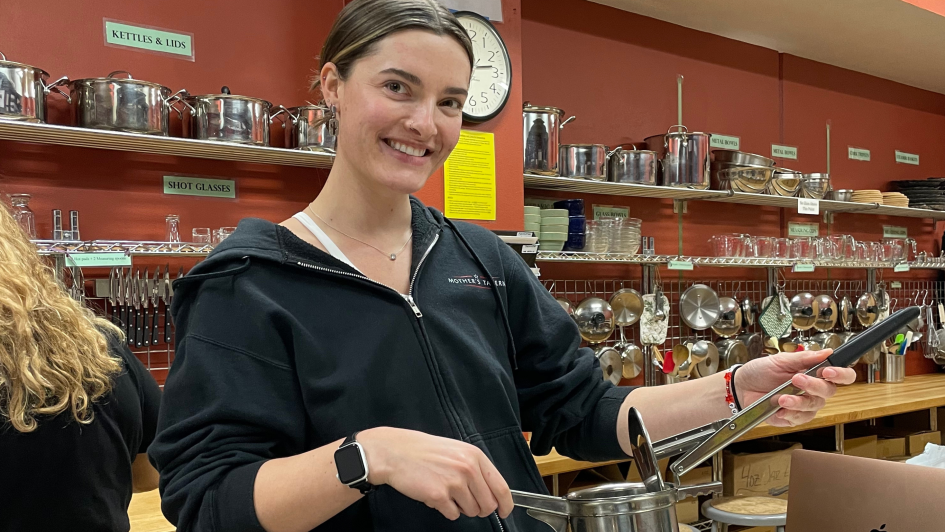Choosing between the Botanical Medicine and Master’s Project track as a Midwifery Student

Published
One of the coolest things about Bastyr’s midwifery program is that there are two ways to earn your Master’s of Science in Midwifery- by doing a traditional Masters project or studying Botanical Medicine! Each Spring, the first year midwifery students decide which track they will pursue for the following two years, and the decision process is different for everyone! But first, what are they?
The Master’s Project:
The Master’s project is the more traditional route of earning your Master’s at Bastyr and midwifery students can choose between 3 options: research, practice-oriented, or continuation of a previous student’s work. The traditional Master’s project is best for driven and self-disciplined students who are wanting to improve their writing skills, get involved in research, and passionate about a certain topic related to midwifery (LGBTQIA+ birth rights, natural labor induction methods, safety of homebirth, midwifery legislation, etc) and making an impact on the maternal health and midwifery community.
Examples of the kinds of research midwifery students have done for their Master’s project at Bastyr are:
- Washington State Certified Professional Midwives: Income and Practice Characeristics Study
- Natural Methods of Induction of Labor: Use by Certified Professional Midwives in an Out-of-Hospital Setting
- Exploring the JJ Way: A Model of Care for Reducing Disparities and Improving Perinatal Outcomes
- A Comparison of Perineal Outcomes By Birth Position
Examples of Continuing Master’s Projects from previous midwifery students usually means updating, building upon, or conducting a previous student’s master’s project like:
- Study Design for Exploration of Effects of Placenta Ingestion on the Prevention of Postpartum Mood Disorder
- Why Midwives Stay: Identifying Factors that Contribute to Career Retention or Burnout among Midwives in the United States
Examples of the kinds of practice-oriented projects midwifery student have done include:
- Effects of Marijuana Use During Pregnancy: A Toolkit for Midwifery Educators
- Professional Midwives: The Need for the Integration, Support, and Promotion of Professional Midwifery in Mexico
- Botanical Medicine for Midwifery Care: A Curriculum Proposal for Student Midwives
And believe it or not, that botanical medicine practice-oriented master’s project is what began the Botanical medicine master’s track for midwifery students at Bastyr!
The Botanical Medicine Track:
The botanical medicine track is a series of courses that midwifery students take during their second and third year which covers herbs for pregnancy, labor induction, birth, postpartum, and breastfeeding and also includes students getting to know plants, making an herbal birth first aid kit, and writing their own Materia Medica to use in their future practice. The botanical medicine track is great for students who like structure in their learning environments, are passionate or curious about how to use plants as medicine in treating pregnant and lactating people, and open to experimenting with different herbs and plants throughout your time at Bastyr! Some students from this program have opened apothecaries, created tinctures and balms to give to clients, and incorporated herbs into the standard midwifery care that they offer to all their clients.
The decision:
Every student chooses their master’s track for a different reason, so it is important to stay true to yourself, go with your gut, and choose what you think will make you the best midwife/person you can be to have a positive impact on the world.
To talk to current midwifery students in the traditional and botanical medicine tracks to hear what they think, schedule an appointment with a midwifery student ambassador today!
Rachel Wright is a first year midwifery student in Kenmore, WA. She believes that it is every birthing person’s right to feel emotionally, spiritually, and physically safe and supported during their pregnancy and birth experience. Her clinical interests include prenatal nutrition, vaginal seeding, and trauma-informed care.

